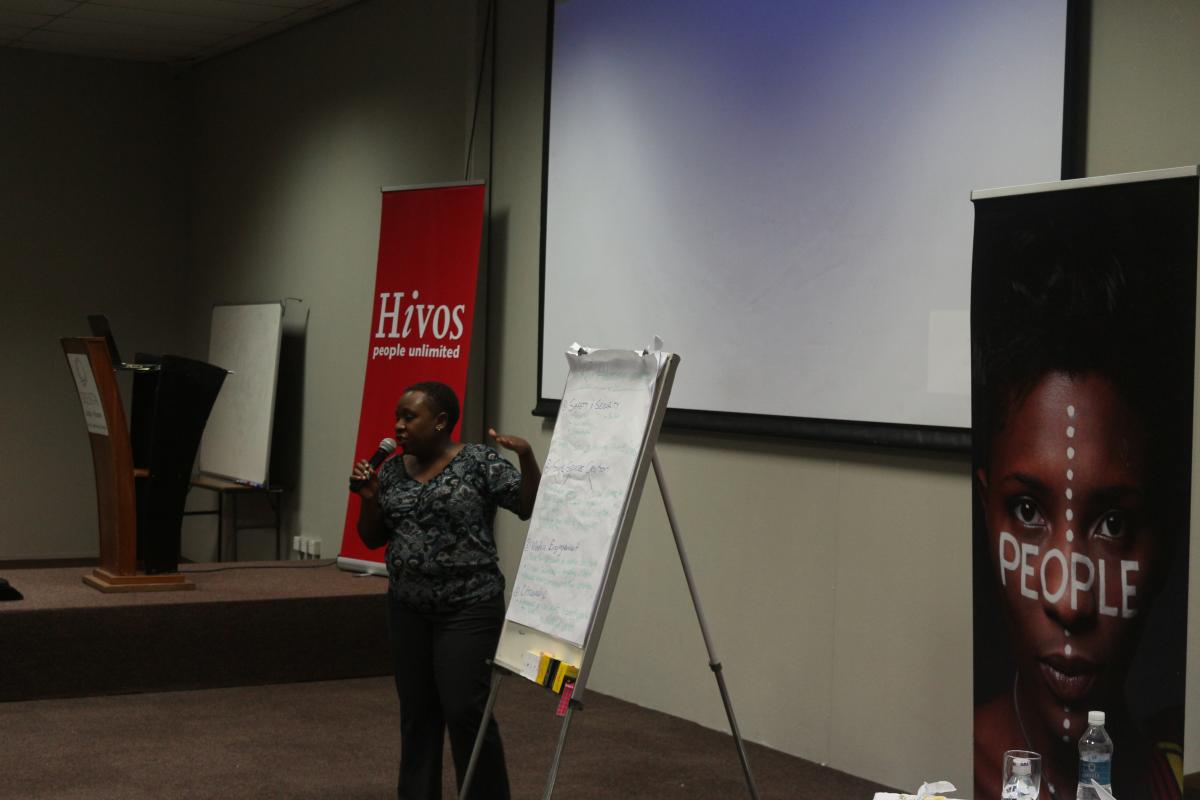Civil Society Organizations (CSOs) in Zimbabwe have been facing huge challenges due to limited funding and a lack of new, creative and innovative strategies to address longstanding problems that inhibit the enjoyment of human rights among citizens in the country.
Against this background, Hivos South Africa, in partnership with the Embassy of the Kingdom of the Netherlands, held a one-day meeting to review successes and challenges and map the way forward for partner CSOs under the Human Rights Fund (HRF) project.
Hivos Southern Africa has been implementing Phase II of the Human Rights Fund on behalf of the Dutch Embassy for the period January 2014 to December 2016. The goal of the programme is to improve the protection and promotion of human rights in Zimbabwe in a sustainable way through support to civil society organizations.
Hivos Southern Africa Hub director Tanja Lubbers provided a background of the HRF, highlighting that the project was coming to an end under Hivos management. She indicated that the HRF would be hosted under a donor basket fund managed by a DFID programme called ‘Transparency, Responsiveness, and Citizen Engagement’ (TRACE). TRACE is aimed at empowering citizens to hold the Zimbabwean state to account.
Lubbers added that the review and reflection did not signify a comprehensive evaluation of work done, but was meant to give an indication of the successes and failures of the HRF under Hivos Southern Africa management.
The meeting had four main presentations focussing on:
- developments that affected civil society work in 2016 and the civil society response
- a critical summative assessment of the work done by Human Rights Fund Partners
- advocacy strategies used by civil society organisations (CSOs) in 2016 with a view to improving them
- the fundraising context and opportunities for CSOs in 2017
Renowned academic Professor Llyod Sahcikonye of University of Zimbabwe gave an incisive analysis of the role of CSOs in Zimbabwe against a background of deteriorating socio-economic conditions, infighting among political parties and diminishing donor funding.
“The impression I get is that there has been a decline in funding, not because the donors have given up on democratic transitions in Zimbabwe, but because of other competing issues emerging globally, such as security and migration. Some donors had to put resources to those issues for their own interests,” said Sachikonye.
The meeting also provided CSOs with an opportunity to reflect on how to employ new strategies to make their organizations financially resilient. Financial resilience refers to a community’s or an individual’s ability to take advantage of growth and development opportunities as they appear, as well as to weather difficult times.
It was emphasized that CSOs in Zimbabwe cannot continue with business as usual. The environment has changed and it is no longer about getting money for the sake of it, but devising a method and logic that delivers impact. In addition, the rise of ultra-conservative and nationalistic governments in the West will have negative impact the operations of CSOs in Zimbabwe, further strengthening the need to aim for impact instead of mere fundraising.




